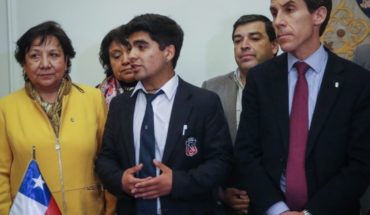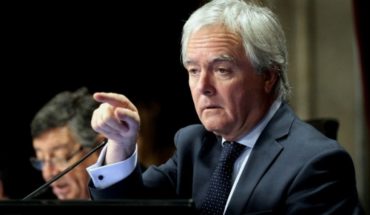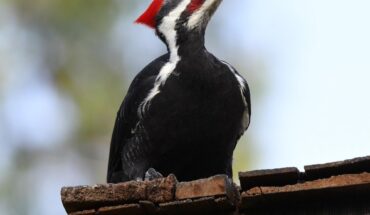LA PAZ (AP) — Bolivia’s interim leader said evo Morales cannot run as a candidate in new elections, although the overthrown representative remains the president of the Andean nation since the Legislative Assembly has not yet accepted his resignation. Bolivia was on its way to uncharted territory friday, with lawmakers trying to reach an agreement to call new elections, protests at various points in the country and rival calls for the presidency.
Morales resigned on Sunday because of pressure from the army following protests across the country over a so-called rigging at the October 20 election, in which he declared his re-election to a fourth term. An election audit of the Organization of American States found widespread irregularities.” The assembly must reject or approve the resignation. So far they have not approved or rejected” so they can still be considered president, Morales noted in an interview with The Associated Press on Thursday in Mexico, where he received political asylum. Morales called on the United Nations, and Pope Francis if necessary, to measure the country’s political crisis after what he called a coupd.In Bolivia, thousands of former president’s supporters demonstrated to return from Mexico.” Evo, friend, the people are with you!” shouted his followers in the town of Sacaba.They arrived there overnight from Chapare, a cooking region where Morales excelled as union leader before becoming the country’s first indigenous president. The soldiers prevented them from reaching Cochabamba, where supporters and detractors of the politician have been crashing for weeks. Many of the protesters carried national flags and the “wiphala”, a multicolored teaching that represents indigenous peoples.” We want respect,” said Maura Trujillo, a 52-year-old coca grower dressed in a colorful traditional skirt and the hat typical of Quechua women. In the capital, La Paz, some gas stations were left without supplies by roadblocks in the nearby city of El Alto, a bastion of Morales and an important fuel distribution point. Jeanine Añez, the vice president of the Senate who claimed the country’s interim presidency, was working to impose authority in the turbulent country. He announced that Morales would not be able to go to the election again and criticized the Mexican government for allowing it to raise support from its capital. Mexico, however, pointed out that Morales has the right to make political statements. According to its chancellery, national and international law states “that the freedom of expression of the asylees cannot be curbed and that such a right cannot be grounds for complaint by another State”. Part of the opposition to Morales was born from his refusal to accept the result that a referendum that would have prohibited him from running for re-election. Following his resignation, it was unclear whether the Bolivian election management authority should formally ban him from running for new elections. The Morales party, Movement for Socialism (MAS), “has every right to participate in elections, seeking candidates,” said Áñez.La call for new elections generated more confusion on Thursday. Some lawmakers in the MAS and the interim government in Añez said they had reached a political settlement to restore peace and pave the way for a new vote in 90 days. The agreement came after Morales’ match Eva Copa Murga was confirmed as president of the Senate with the votes of the seats of the Democratic Unity of Añez party.Copa Murga called the day “historic”. Some lawmakers, however, denied that there was any agreement. Bolivia’s new interim government began to receive international recognition, but faced challenges to its legitimacy within its borders. Members of the MAS, who control both houses of Congress, held legislative sessions aimed at questioning the legitimacy of Añez, who before the president’s departure was fifth in line to succeed Morales. He climbed positions because everyone in front of him — all of them followers of the leader _ also submitted his resignation, although some tried to withdraw it later.
In addition to accusing Morales of inciting violent dissent, the new government attacked some of its allies in the country.
The new interior minister of Añez, Arturo Murillo, said he had spoken to the police and ordered the “hunt” of his predecessor, Juan Ramón Quintana.” Why is it hunting? Because it is an animal that is killing people,” added Murillo.Añez needs the recognition of more Bolivians, stabilize the country and call new elections within 90 days, rebuilding the country after weeks of violent protests against Morales over the the result of the controversial elections.” If the indigenous social movement sees this as an effort by the old elite to restore the old order in the Bolivian Society, I think this is the recipe for a huge political conflict,” said Kenneth Roberts, government professor at Cornell University in Ithaca , New York.The Secretary-General of the United Nations, Antonio Guterres, announced that he will send Jean Arnault, his special envoy, to Bolivia to try to find a way out of the crisis. Arnault traveled to the country on Thursday, explained the agency’s spokesman, Stephane Dujarric.In Brazil, Russian President Vladimir Putin said at a summit of the group of emerging countries BRICS, that the situation in Bolivia is alarming.” They have no leadership. It is similar to the situation in Libya, although there is no direct armed intervention. But the country is swirling through chaos,” Putin said. be one of their excesses. On the 24th floor, the empty presidential suite has a mural that includes leaders such as Nelson Mandela and Fidel Castro; a reading room with several biographies of Morales; a few clothes in the master bedroom, and a jacuzzi. Morales changed the politics of this decades-governed country by descendants of more clear-complexion Europeans by reversing deep inequality. The economy grew strongly thanks to rising commodity prices. In addition, it enacted a new Constitution that created a Congress with seats reserved for indigenous minorities and allowing self-government of native communities. Although some of his followers were unhappy at his insistence on clinging to power, Morales remains a popular figure, especially among the Aymara, the ethnicity to which he belongs.





